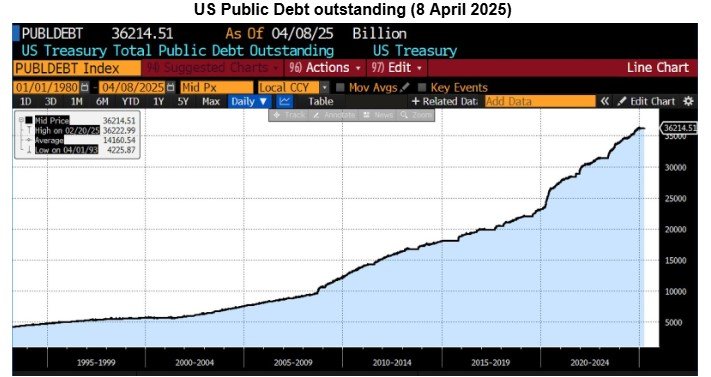The school choice revolution just scored its most historic victory yet. The Texas House passed Senate Bill 2 by a decisive vote of 86 to 63, following the Texas Senate’s approval by a 19 to 12 margin.
Texas Senate leadership announced Friday that the chamber plans to concur next week with the version of the bill passed by the House. Shortly afterwards, Governor Greg Abbott announced that he is “ready to sign this bill into law.”
This isn’t just a win for Texas families — it’s the biggest day-one school choice initiative in US history, launching a $1 billion Education Savings Account (ESA) program for 100,000 students. The initiative provides about $10,000 per child for private school tuition or other educational expenses, with more funding for students with disabilities. Homeschool families would receive $2,000 per student per year for approved education expenses.
Texas is the sixteenth state to pass universal school choice since 2021, cementing red states as the vanguard of parental rights in education.
Texas’s journey to this moment was fraught with resistance. Just last year, 21 Texas House Republicans joined all Democrats to vote against school choice, sinking Governor Greg Abbott’s school choice proposal in 2023. But the political winds have shifted dramatically. After the 2024 primaries, only seven of those Republicans remained in office, thanks to Abbott’s relentless campaign to oust anti-school choice incumbents.
On Thursday, six of those seven holdouts flipped, voting in favor of universal school choice, signaling a seismic realignment in the Texas House. This turnaround underscores the growing clout of parents and the electoral peril of standing in their way.
The spark for this parent-led revolution came from an unlikely source: Randi Weingarten and the teachers’ unions. By fighting to keep schools shuttered during the COVID era, they gave parents a front-row seat to the Marxist critical race theory and gender ideology infiltrating public school curricula.
Outraged and galvanized, parents became a political juggernaut, demanding control over their children’s education. Their influence fueled Donald Trump’s landslide victory in November 2024, driven by a nine-point lead among parents — a 15-point shift from 2020, when they favored Joe Biden by 6 points.
The result is staggering: about 40 percent of America’s school-age population now lives in states with universal school choice policies — a meteoric rise from zero percent in 2021.
Red states like Texas, Florida, Arizona, and Iowa are setting the standard for parental empowerment, recognizing that families, not bureaucrats, know what’s best for their kids. Florida, once a swing state, shows how school choice reshapes politics. In 2018, Ron DeSantis narrowly won his first gubernatorial election because school choice moms rallied behind him after his Democrat opponent, Andrew Gillum, vowed to dismantle the state’s scholarship program.
Those parents tipped the scales, and today, Florida Republicans boast supermajorities in both the House and Senate. School choice isn’t just the right thing to do — it’s a political winner for Republicans, helping them make inroads with voters who might otherwise lean Democrat. Families desperate for better education options become single-issue voters, rewriting the political playbook.
Meanwhile, blue states are doubling down on policies that alienate parents, ignoring the mandate from Trump’s parent-driven victory. In Colorado, Democrats passed House Bill 25-1312, classifying “misgendering” your own child as child abuse, potentially ripping away children from their parents if they refuse to affirm the delusions of a small child.
In Illinois, Democrats eliminated the state’s modest school choice program in 2023 and are now targeting homeschooling freedom with House Bill 2827. This bill, which advanced out of committee on a party-line vote last month, would force homeschooling families to file annual declarations, disclose detailed personal information about their children, and submit to portfolio reviews by public school officials, with truancy charges or misdemeanor penalties for non-compliance.
These policies aren’t just out of touch — they’re a direct assault on parents’ rights to direct their children’s upbringing.
The political consequences of ignoring parents are clear. In Virginia’s 2021 gubernatorial race, former Governor Terry McAuliffe handed victory to Glenn Youngkin by dismissing parental concerns, infamously stating, “I don’t think parents should be telling schools what they should teach.” That misstep ignited a parent-led backlash, proving parental rights are a third rail in politics. Democrats better learn this lesson soon if they want to stay in office.
School choice enjoys overwhelming bipartisan support — 71 percent of voters back it, including 80 percent support among Republicans and 69 percent support among independents. Even Democrats privately concede it’s a winning issue, but their loyalty to teachers’ unions keeps them tethered to a losing strategy.
School choice is more than better education — it’s a pathway for Republicans to expand their majorities by appealing to diverse voters. When families see their kids thriving in schools that align with their values, they don’t just vote — they mobilize. In Arizona, universal school choice passed in 2022 and has become a cornerstone of family empowerment. Once parents gain the power to choose, they fight like hell to keep it, and politicians who try to claw it back face political consequences.
The teachers’ unions thought they could hold education hostage, but they’ve awakened a sleeping giant. Parents are now a more potent voting bloc than union bosses, reshaping the political landscape.
Texas’s Senate Bill 2 marks a national turning point, showing that empowering parents is both good policy and smart politics. Republicans are building coalitions across racial, economic, and geographic lines, as Texas’s shift from 21 Republican holdouts in 2023 to a pro-school choice majority in 2025 demonstrates. Democrats in blue states are running out of time to adapt. The longer they cling to policies like Colorado’s HB 25-1312 or Illinois’s HB 2827, the more they risk political suicide.
The parent revolution is here to stay, and red states are leading the way. As Texas joins the ranks of school choice pioneers, the message to union-controlled politicians is clear: empower parents or prepare to lose.
The days of top-down control over education are numbered. Families are taking back their power, and won’t give up without a fight.









Leave a Reply